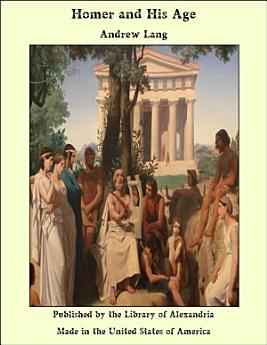Homer and His Age
À propos de cet ebook
The fallacy is that of disregarding the Homeric poet's audience. He did not sing for Aristotle or for Aristarchus, or for modern minute and reflective inquirers, but for warriors and ladies. He certainly satisfied them; but if he does not satisfy microscopic professors, he is described as a syndicate of many minstrels, living in many ages.
In the present volume little is said in defence of the poet's consistency. Several chapters on that point have been excised. The way of living which Homer describes is examined, and an effort is made to prove that he depicts the life of a single brief age of culture. The investigation is compelled to a tedious minuteness, because the points of attackÑthe alleged discrepancies in descriptions of the various details of existenceÑare so minute as to be all but invisible.
The unity of the Epics is not so important a topic as the methods of criticism. They ought to be sober, logical, and self-consistent. When these qualities are absent, Homeric criticism may be described, in the recent words of Blass, as "a swamp haunted by wandering fires, will o' the wisps."
In our country many of the most eminent scholars are no believers in separatist criticism. Justly admiring the industry and erudition of the separatists, they are unmoved by their arguments, to which they do not reply, being convinced in their own minds. But the number and perseverance of the separatists make on "the general reader" the impression that Homeric unity is chose juge, that scientia locuta est, and has condemned Homer. This is far from being the case: the question is still open; "science" herself is subject to criticism; and new materials, accruing yearly, forbid a tame acquiescence in hasty theories.
May I say a word to the lovers of poetry who, in reading Homer, feel no more doubt than in reading Milton that, on the whole, they are studying a work of one age, by one author? Do not let them be driven from their natural impression by the statement that Science has decided against them. The certainties of the exact sciences are one thing: the opinions of Homeric commentators are other and very different things. Among all the branches of knowledge which the Homeric critic should have at his command, only philology, archaeology, and anthropology can be called "sciences"; and they are not exact sciences: they are but skirmishing advances towards the true solution of problems prehistoric and "proto-historic."
Our knowledge shifts from day to day; on every hand, in regard to almost every topic discussed, we find conflict of opinions. There is no certain scientific decision, but there is the possibility of working in the scientific spirit, with breadth of comparison; consistency of logic; economy of conjecture; abstinence from the piling of hypothesis on hypothesis.








